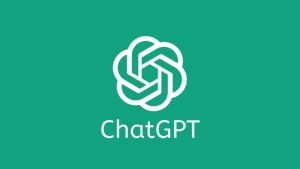
Note. From ChatGPT: its influence, its future… its threat? [image of ChatGPT logo], 2023, The Beacon Mast. https://thebeaconmast.com/2364/science/chatgpt-its-influence-its-futureits-threat/
So, what exactly is ChatGPT? It is a language generation model that was created by OpenAI based on Generative Pre-Trained Transformer (GPT) architecture that uses deep learning to generate text (Jackson, 2023). In layman’s terms, it is an AI web tool that can generate human-like responses to a prompt or question inputted by a user. Some of the things ChatGPT can do is answer questions, generate text, and chat with users (Jackson, 2023).
ChatGPT is relatively good at low-level tasks like answering general questions or generating a few paragraphs on a specific topic (Jackson, 2023). One way it could be used in libraries is to provide answers to frequently asked questions. For example, libraries could incorporate ChatGPT into their website, so patrons could use it to ask questions and receive a more human-like response. Other applications of ChatGPT include language translation services and content creation (Jackson, 2023).
Although it is a powerful tool it does have many limitations. A great Youtube video I watched was an interview between two SJSU faculty members discussing the pros and cons of ChatGPT. In the video Professor Marachi stated that ChatGPT is good at telling us what it wants us to hear and gives a narrow view of an answer, not the full picture (SJSUCollegeHA, 2023). Another interesting concern she brought up was that it gives users the sense that the information it provides is accurate or truthful, which is not the case. For example, both panelists tested ChatGPT and found that even when they asked the same question they were given different answers which they stated increased both disinformation and misinformation (SJSUCollegeHA, 2023).
In conclusion, disruptive technologies like ChatGPT, are an inevitable part of technological advancement and affect all institutions. Ultimately our role as librarians should be to help people learn about tools like ChatGPT, understand their limitations, and to provide guidance on when they should or should not be used.
References:
Jackson, J.H. (2023, February 14). Chatting with ChatGPT: Deep dive in five with Tom Moriarty. SJSU NewsCenter San Jose’s State’s Official News Source. https://blogs.sjsu.edu/newsroom/2023/chatting-with-chat-gpt-deep-dive-in-five-with-tom-moriarty/
Papini, A. (2023, January 27). ChatGPT: A Library Perspective. Bryant University Krupp Library. https://library.bryant.edu/chatgpt-library-perspective
SJSUCollegeHA (2023, February 21). QuickBites, a forum for Urgent News: ChatGPT: Help or Hype? . Youtube. https://youtu.be/4kOsZYMU7sk?si=xJ7GqdS_eXHVtKSb
Daniel – I like the idea of an AI enabled Chatbot that would answer all the questions that patrons usually ask maybe before they’re connected to a librarian or staff member. What’s interesting to me? Is that interview in 2023 made some very good points but I wonder in 2025 how much smarter the AI machines are!
Hey Daniel! Great post! I think how librarians use ChatGPT moving forward will be interesting. I personally think the more detail you ask towards ChatGPT, the more it can come up with a reasonable response. It does have its limitations after it hits 4 hours after using it frequently or if a patron doesn’t have an account. Will be interesting moving forward how much progress it makes in the future.